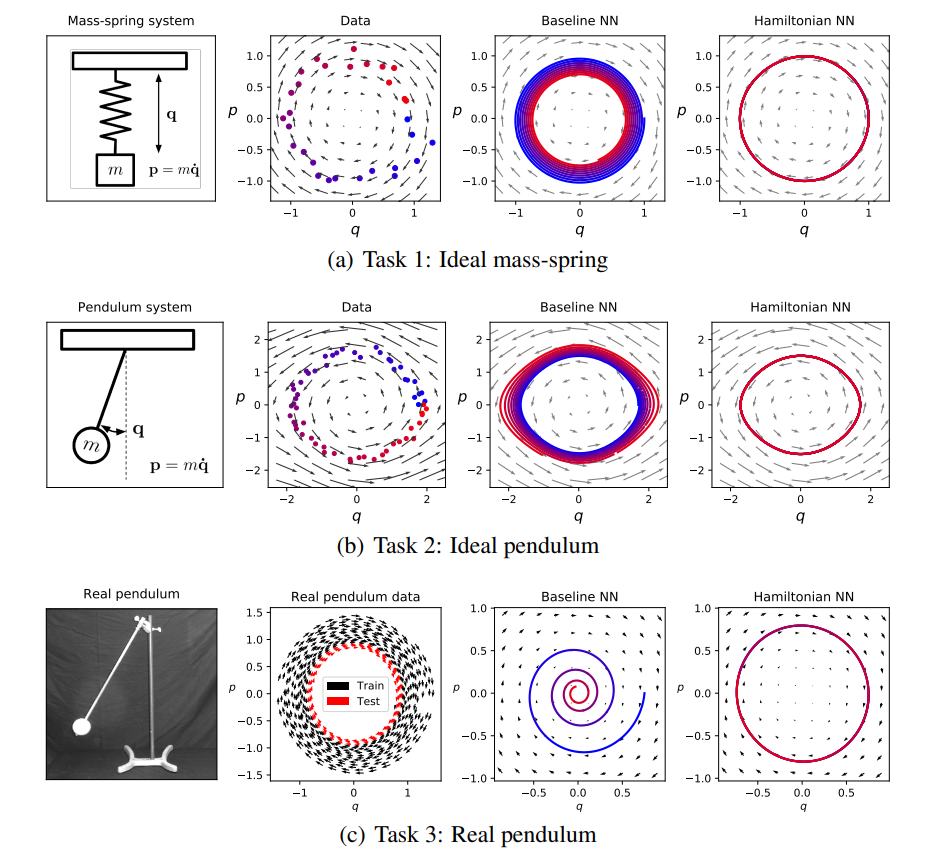A group of researchers from Google Brain, PetCube and Uber has proposed a neural network model that learns and respects laws of physics.
In their novel paper – “Hamiltonian Neural Networks” they describe a new model inspired by Hamiltonian mechanics. Arguing that neural networks have not been trained to explicitly learn exact physical laws, researchers designed a “hamiltonian neural network” that does exactly that by learning conservation laws.
Based on the theory behind Hamiltonian mechanics, which gives the relationship between a system and some conserved quantity (most often energy), a neural network was trained to learn this mapping directly from data and simulate the system evolves over time. The proposed model takes a set of coordinates as input and outputs a single scalar value which represents a form of “energy” (or other quantity).
Compared to standard neural network models, the novel model demonstrates better generalization capabilities and it learns faster. It was evaluated on three rather simple physics tasks, in order to empirically show its performances: Ideal mass-spring (learning the dynamics of a frictionless mass-spring system), Ideal Pendulum (learning dynamics of a frictionless pendulum or nonlinear oscillator) and Real Pendulum (finding the position and momentum of a real pendulum).

More details about the newly proposed hamiltonian neural networks and the evaluation can be found in the paper.